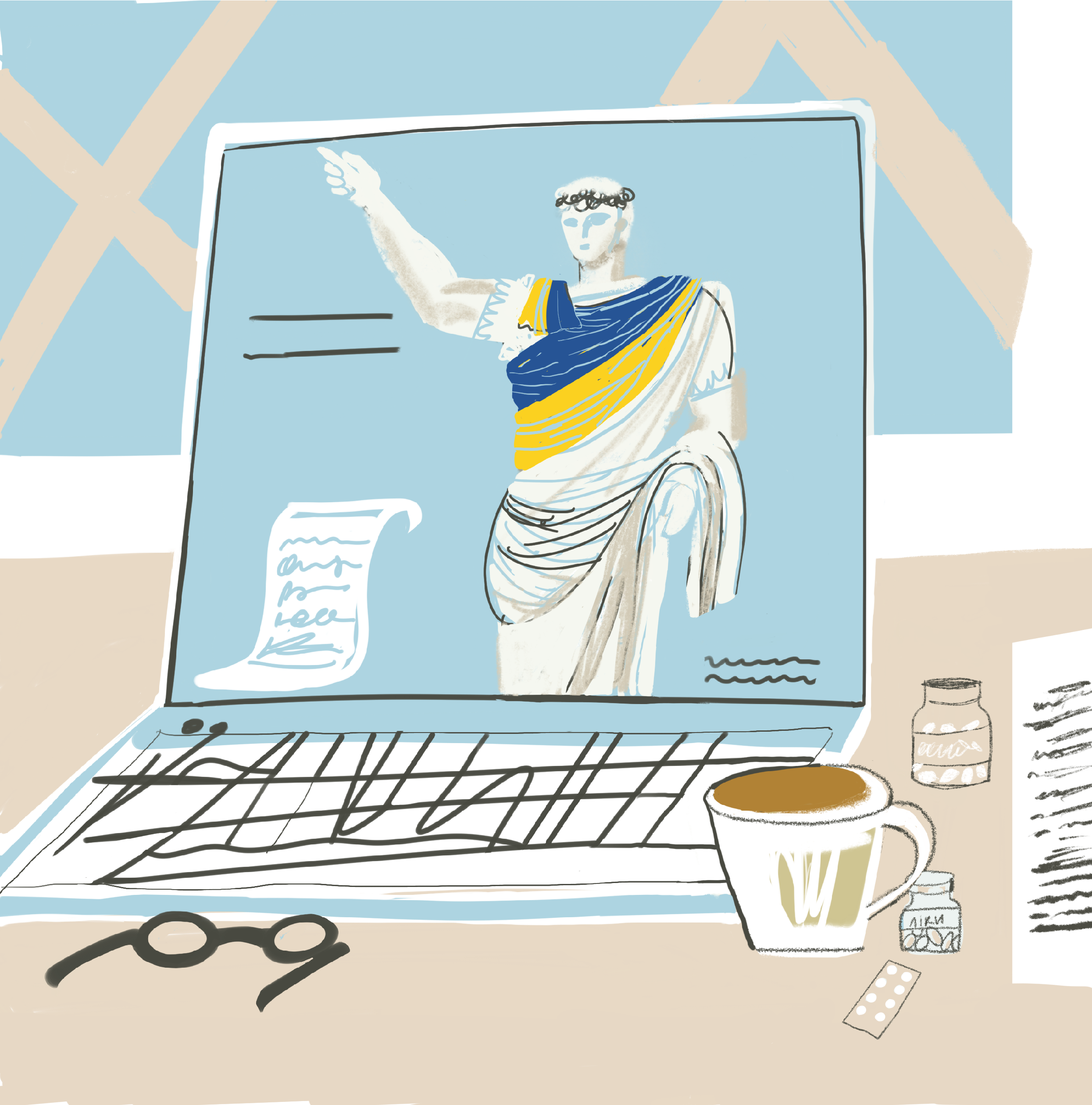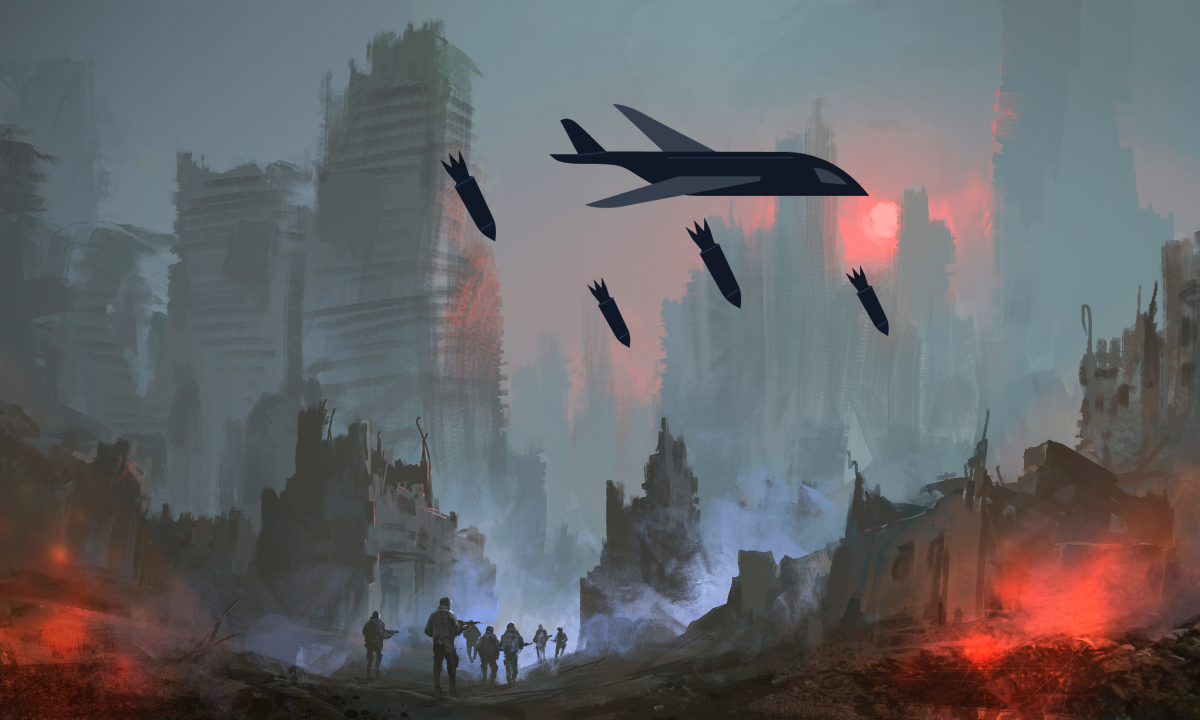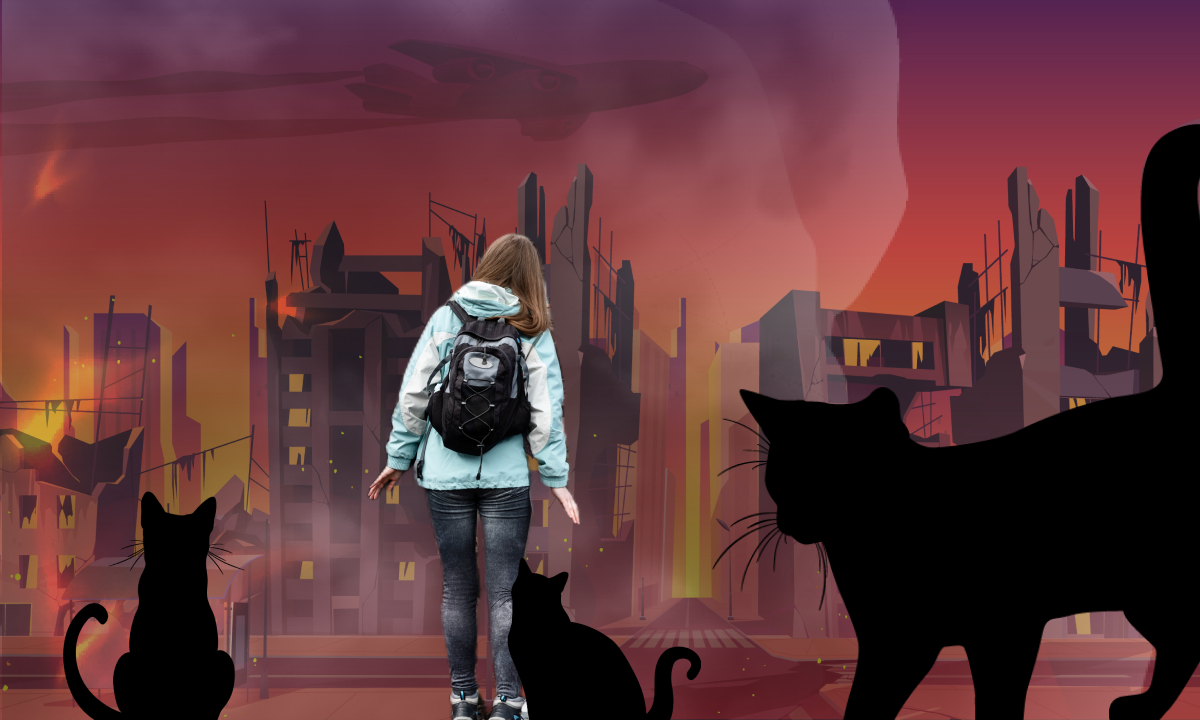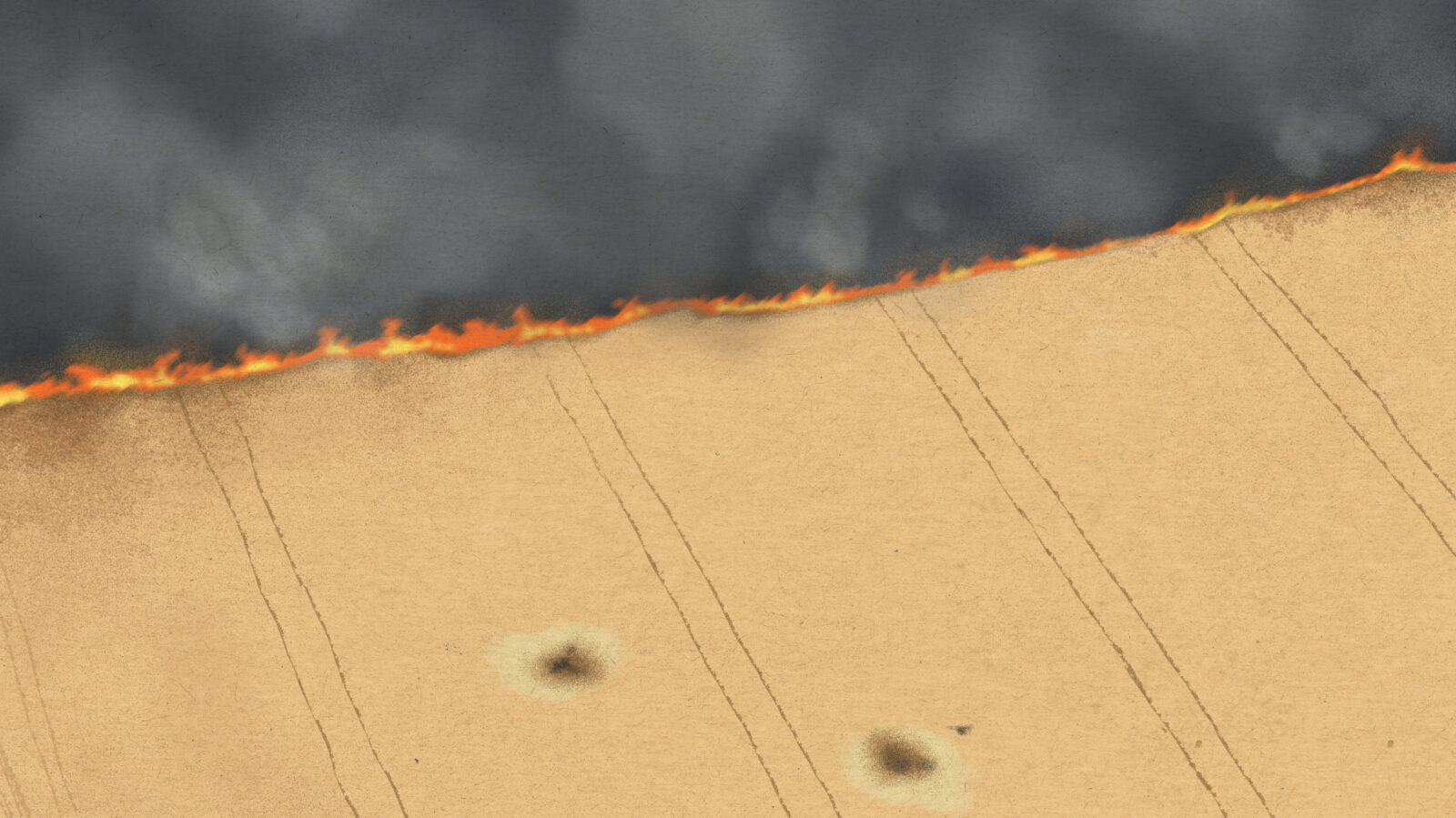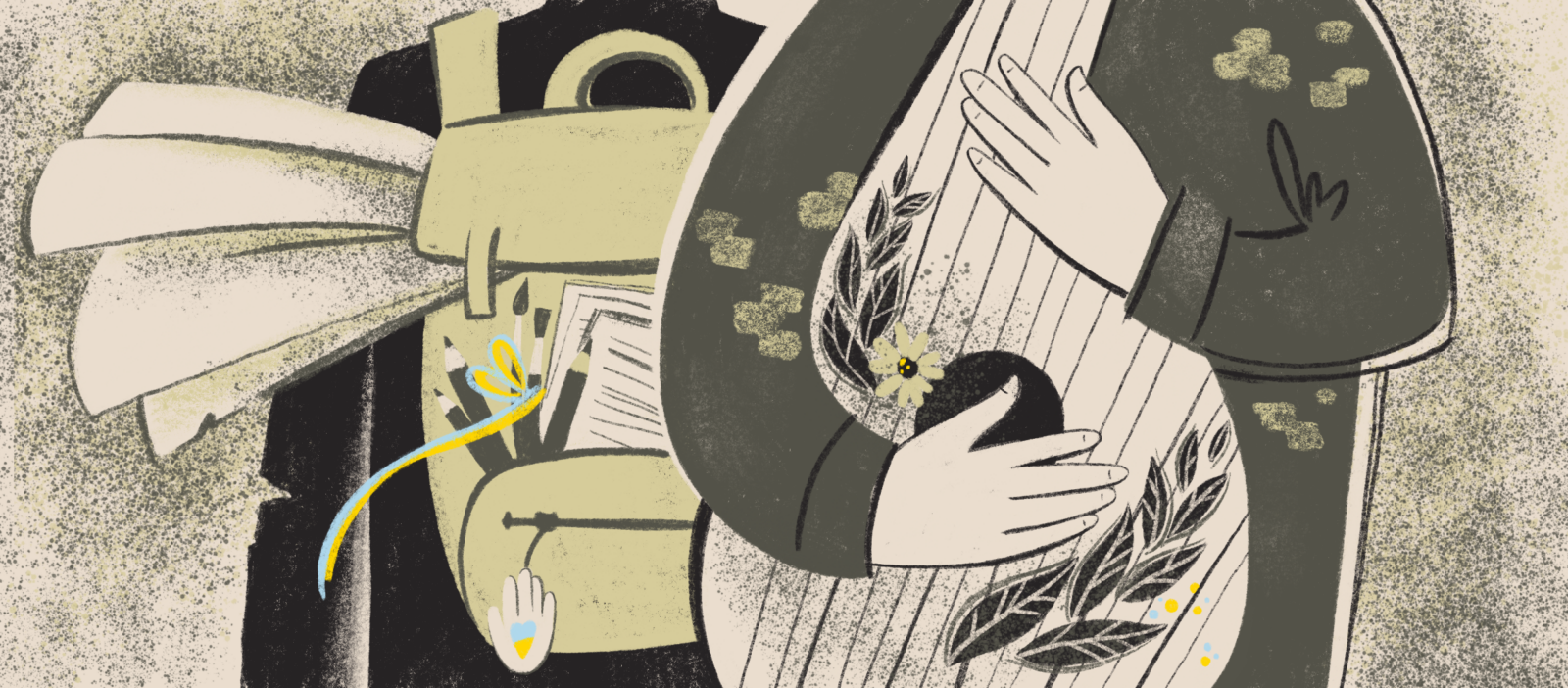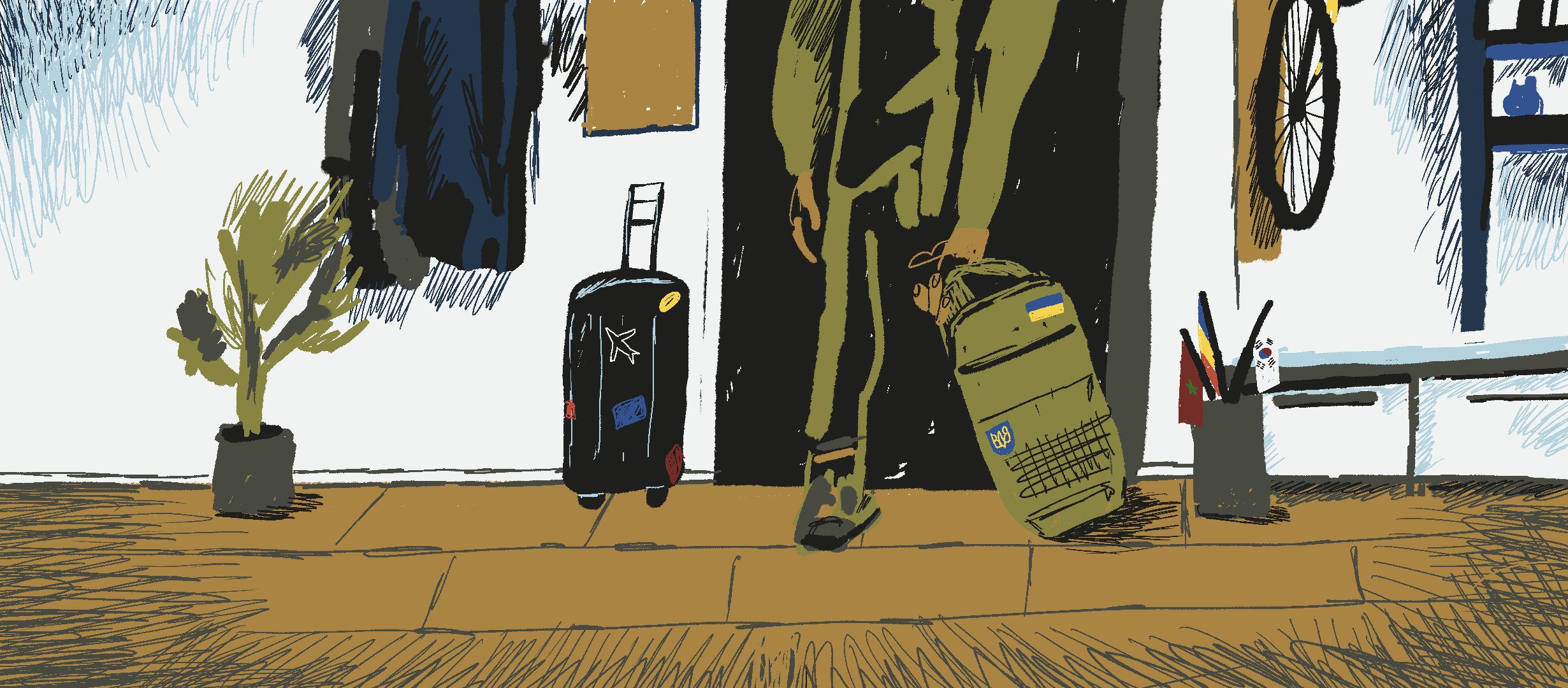Illustrated by Daria Babchenko
“The first night of the war caught me in fear, I was totally shocked. I was convinced it would never happen. I was up all night, scrolling the news, and on the following day, I pulled myself together somehow. Life goes on. The sun has risen,” says Natalia Yakovenko, a 79-year-old historian from Kyiv.
On the evening of February 23, she received a call from the Laurus publishing house and heard that they had found everything they needed to publish her translation of the Roman historian Titus Livius. It was to be published in two weeks. And the very next day, Russia started its full-scale invasion of Ukraine, and the publishing house was in Kharkiv then.
“On the second day of the war, I forced myself to turn my computer on and started doing what I had done before, translating. It’s a kind of medicine for me. A culture that doesn’t have Livius, Tacitus, or Plutarch is not quite complete. I decided that translating Titus Livius into Ukrainian was my duty, my historical front.”

Natalia Yakovenko didn’t give much thought to leaving: “This is my city. I will not run away from every bandit or loony who comes here.”
Most of all, Natalia Yakovenko is afraid that the war will last for a long time. Although she is convinced that Ukrainians will win. Ukrainian stubbornness gives her special hope.
“We are hardy and resilient people. The well-known Ukrainian stubbornness has turned into mass heroism. Now this is the most demanded trait for us,” the historian says.
She believes that first of all, we need to tell the world about our ingrained identity and how we managed to survive in the most unfavorable situations.
“Our main trait is inner resilience and confidence that we are worth who we are and who we can be. Nations are created not in the offices of historians, but on the battlefields. Losses and tragedies cement together the disparate mass that we call the people. What is happening now has not spared anyone. The tragedy penetrated homes, families, with physical injuries and the loss of children. Such things cannot be forgiven,” Natalia Yakovenko says.
Translated by Oksana Biliavska

